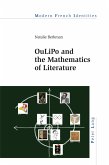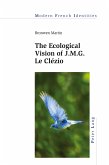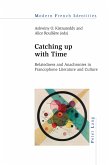Questioning hegemonic masculinity in literature is not novel. In the nineteenth century, under the July Monarchy (1830-1848), several French writers depicted characters who did not conform to gender expectations: hermaphrodites, castrati, homosexuals, effete men and mannish women. This book investigates the historical conditions in which these protagonists were created and their success during the July Monarchy. It analyses novels and novellas by Balzac, Gautier, Latouche, Musset and Sand in order to determine how these literary narratives challenged the traditional representations of masculinity and even redefined genders through their unconventional characters. This book also examines the connections and the disparities between these literary texts and contemporary scientific texts on sexual difference, homosexuality and intersexuality. It thus highlights the July Monarchy as a key period for the redefinition of gender identities.








